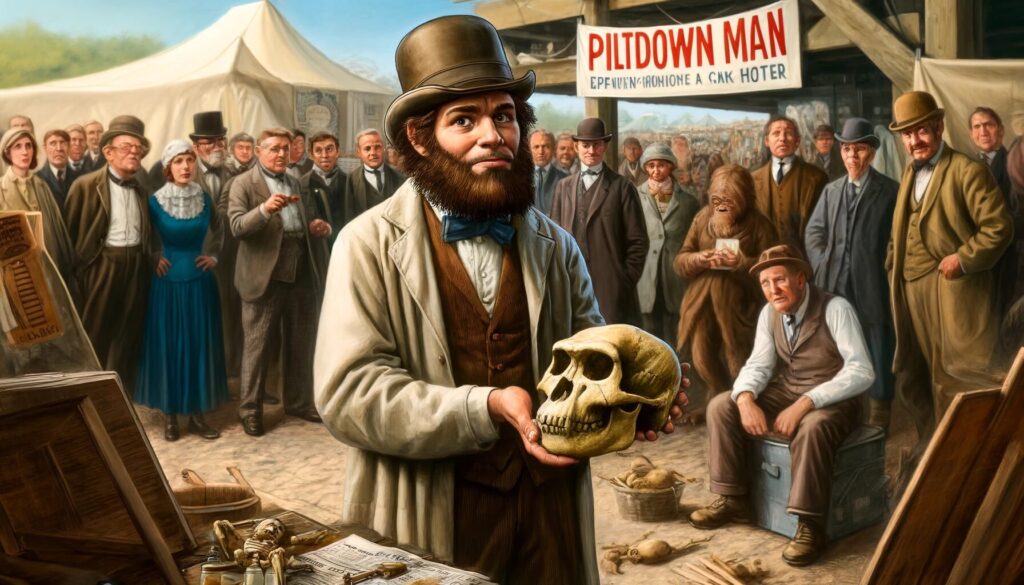
Reading
Throughout history, there have been many famous hoaxes and scams that have fooled people. One of the most interesting scams was the “Piltdown Man” hoax. In 1912, Charles Dawson, an amateur archaeologist, claimed to have found the missing link between apes and humans. The Piltdown Man was a skull that seemed to have both human and ape features. Scientists were excited and reviewed the find carefully.
However, not everyone was convinced. Over the years, scientists began to notice problems with the skull. They refined their techniques and used new tools to study it. In 1953, they discovered that the Piltdown Man was a fake. The skull was made from a modern human and an orangutan. The teeth had been filed down to look older. This discovery forced scientists to revise their understanding of human evolution.
Another famous scam was the “Cardiff Giant.” In 1869, a ten-foot-tall stone man was discovered in Cardiff, New York. Many people believed it was a petrified prehistoric man. Thousands of people paid to see it, and the owners made a lot of money. However, it was later revealed that the giant was just a carved statue. The creator, George Hull, made it to outsmart religious people who believed in giants. Once the truth came out, people demanded a refund.
These historical scams teach us the importance of careful review and skepticism. They show how refined scientific methods can help us uncover the truth and outsmart those who try to deceive us. By studying these events, we learn to revise our beliefs based on new evidence.
Reading Comprehension Quizzes
- Multiple Choice: What was the Piltdown Man hoax? a) A giant stone man discovered in Cardiff. b) A skull that seemed to be the missing link between apes and humans. c) A fake dinosaur fossil. d) An ancient artifact found in Egypt.
- True or False: The Piltdown Man hoax was discovered to be fake in 1912.
- Short Answer: Why did people demand a refund after learning the truth about the Cardiff Giant?
Discussion Questions
- Have you ever believed something that turned out to be false? How did you feel when you found out the truth?
- Why is it important to review and revise information, especially when it seems too good to be true?
